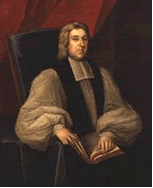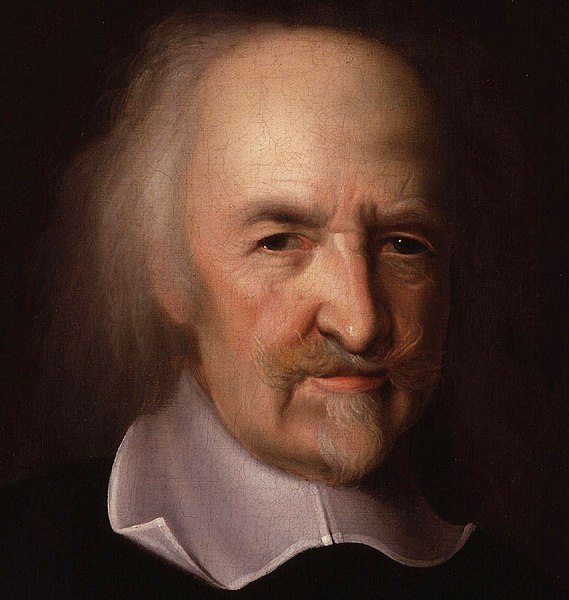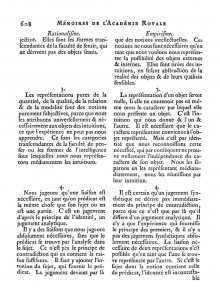CFP: Aristotelian Natural Philosophy in the Early Modern Period
From Lucian Petrescu:
The Sarton Centre for History of Science and the Department of Philosophy and Moral Science, Ghent University announces a conference on
23-24 May 2013
with the theme
Aristotelian natural philosophy in the early modern period
Early modern philosophers liked to debate about Aristotle just as much as medieval scholars. They had different sources to fuel their discussions: from the humanist preoccupation with a pristine Aristotle and a purification of a corpus perceived as corrupted to the very medieval doctors that others sought to forget. This conference aims at reconstructing the various ways in which Aristotle’s natural philosophical books were read and used to nourish various philosophical agendas.
We welcome papers on any topic related to late medieval and early modern natural philosophy (roughly 1300-1700) that can contribute to a better understanding of the reception of Aristotle in the period. Papers focussing on the reception of less prominent books of the /corpus aristotelicum/, such as the /Meteorologica/ or the /Parva Naturalia/, are especially welcome.
For paper submissions, please send an abstract of 500 words by *January 15th*, in English or French, to Lucian Petrescu <lucian.petrescu@ugent.be> and Maarten van Dyck <maarten.vandyck@ugent.be>.
Invited speakers: Daniel Andersson (Oxford University / Babes-Bolyai University Cluj), Roger Ariew (University of South Florida), Paul Richard Blum (Loyola University Maryland), Helen Hattab (University of Houston), Carla Rita Palmerino (Radboud University Nijmegen).
Contact: Lucian Petrescu and Maarten Van Dyck.
Feijoo and his ‘Magisterio de la experiencia’ (lessons of experience), Part II
In my previous post I introduced a text by the Spanish priest Beníto Jerónimo Feijoo. We saw Feijoo giving his picture of the history of philosophy by telling a story of two ladies, Solidína (experience) and Ideária (Imagination), who attempt to conquer the kingdom named Cosmósia (the world). Feijoo sides with Solidína (experience) and in the rest of the essay he gives an argument for the adoption and promotion of the experimental method and the rejection of speculation unaided by experience.
The first thing he points out is
- … the little or no progress, which natural reason, unaided by experience, has made in the examination of the affairs of nature in the course of so many ages…What utility has the labours of so many men of excellent ingenuity, as have cultivated philosophy in the reasonable and speculative way, produced to the world? What art, either liberal or mechanical, of the many that are necessary for the service of man, or the good of the public, do we owe to speculative invention; and I might even say, what small advancement in any such art, has been derived from it?
Feijoo focuses on natural philosophy and medicine to show the errors of the way of philosophizing the schoolmen adhere to and teach by in the universities in Early Modern Spain. I will only consider here one of the examples he gives regarding natural philosophy. Feijoo comments on the discovery of the ‘pointing of the magnetic needle to the pole.’ His intention is to show that experience always needs to accompany all our reasonings. He tells us that the discovery of this property of the magnetic needle was first discovered in the thirteenth century, but the traditional way of philosophizing has prevented us from understanding how this property works:
- This admirable property [the pointing of the magnetic needle to the pole], which was totally unknown to the antients, was discovered in the thirteenth century, and immediately applied to the improvement of navigation. Upon its first discovery, the philosophers, according to their wonted custom of pretending to discern the causes of things, imputed this effect, as derived from an occult sympathy with the pole, contained in the very essence, form, and substance of the loadstone; and as this is supposed to be invariable, they concluded, that the direction must infallibly be invariable also.
However, experience proved them wrong and with time navigators noticed that the direction does vary and not always points directly to the pole. The philosophers had to reluctantly accept this even though they tried to discredit the observations of reliable navigators. But this didn’t deter them from making further speculations. Once it was discovered that at some places there is no variation of the direction of the needle, ‘under the meridian of the Azores,’
- … astronomers and geographers thought they had found out a fixed station, whereat to commence the first meridian… But this idea soon vanished, for a little while afterwards, they discovered two other meridians, where there was no variation… Upon this, they thought they had found out a certain principle, whereon to ground a compleat system for calculating or computing variations, by graduating them for the intermediate stations, in proportion to their greater or less distance from the mean space between the two places where there was no variation.
But once again a new discovery through experience disproved their speculations
- … they discovered, that this declination of the magnetic needle, varied more or less at the same place at different times, and that this change of variation was perpetual… In this instance, may be seen the fallibility of the most plausible reasonings unaccompanied by experiments.
Feijoo’s comments are very interesting. Notice that he is not saying that speculations themselves are the source of error, but rather he points out that they most certainly lead to error when unaided by experience. In the compass case the rules were at one instance deduced from experience, but once the speculative philosophers left experience aside they fell into error. Feijoo clarifies this thought in the following passage
- If the rules deduced from experimental observations are so fallible, that it is absolutely necessary in order to avoid all error, to pursue the thread of them so scrupulously, that reason should not venture to advance a step, without the light of an experiment appropriated to the business it is in search of; I say, if these rules are not to be relied on, what confidence can we place in those maxims, which derive their origin from our arbitrary ideas?
Feijoo is being very cautious here; he admits that even rules deduced from experience might be falsified, so we need to constantly check them with experiments and observations. Feijoo clearly prefers the method of experience, but he is also aware that experience sometimes can lead us astray. In the compass example shown above Feijoo tells us that our reasoning always needs to be aided by experimental observation. Further in the essay, as we will examine in a future post, he tells us that our senses alone are not enough for the acquisition of true knowledge, which can only be reached through reasoning and experience used together.
Hypotheses and political philosophy: Tenison against Hobbes
Peter Anstey writes …
Our research project at Otago on experimental philosophy has largely focused on natural philosophy. However, while early modern experimental philosophy had its origins in natural philosophy in mid-seventeenth-century England, it quickly impacted on other disciplines.

Tenison (1636-1715)
Experimental philosophers, as we have repeatedly stressed in previous posts on this blog, regarded Francis Bacon as their progenitor and promoted observation and experiment and decried speculation and the use of hypotheses and premature system building.
It is of great interest, therefore, to find elements of the method of experimental natural philosophy being applied as early as 1670 in an attack on Thomas Hobbes’ doctrine of the state of nature. The divine Thomas Tenison in his The Creed of Mr Hobbes examined, London, 1670, attacked Hobbes’ doctrine of the state of nature for being the product of Hobbes’ own imagination. Hobbes postulated in his Leviathan (1651) that before the existence of civil society all people were in a state of ‘warre, as is of every man, against every man’’ in which life is ‘solitary, poore, nasty, brutish, and short’. Here is how Tenison attacks him:
It is a very absurd and unsecure course to lay the ground-work of all civil Polity and formed Religion, upon such a supposed state of Nature, as hath no firmer support than the contrivance of your own fancy. (p. 131)
For Tenison, it is one thing for the various competing cosmological hypotheses of Ptolemy, Tycho, Copernicus and Descartes to be entertained, for, even if none of these happens to be true, ‘the interests of Men remain secure’. But it is another thing entirely to found the doctrines of civil, moral and Christian philosophy on ‘Hypotheses, framed by the imagination’. Tenison continues:
such persons who trouble the World with fancied Schemes and Models of Polity, in Oceana’s and Leviathans, ought to have in their Minds an usual saying of the most excellent Lord Bacon concerning a Philosophy advanced upon the History of Nature. That such a work is the World as God made it, and not as Men have made it: for that it hath nothing of Imagination. (pp. 131–2)

Hobbes (1588-1679)
Note the appeal to Bacon, the reference to natural history and the criticism of philosophy based upon fancies. (Note too the reference to James Harrington’s The Commonwealth of Oceana, 1656.) And yet Tenison does not appeal to observation and experiment because Hobbes’ doctrine as he conceives it is about a past state in human history. Instead he believes that civil philosophy should use ‘reason assisted with Memory touching the passed state of the World’ (p. 131).
What I would like to know is whether this the first use of aspects of the method of experimental philosophy to critique political philosophy?
Electricity: A Speculative Newtonian Experimental Science?
Kirsten Walsh writes…
In his book, Franklin and Newton, I. Bernard Cohen described Franklin’s work on electricity as an example of “Speculative Newtonian Experimental Science”. The central thesis of our project is that the most common and the most important distinction in early modern philosophy is that between Experimental and Speculative Philosophy. So ‘speculative experimental science’ sounds like a contradiction in terms. Today, I’ll consider whether this label is appropriate.
Cohen describes electricity as a Newtonian science that only took off after Newton’s death. While Newton was fascinated with electrical phenomena, he, like his contemporaries, didn’t really understand it. However, his discussions of electricity, especially the queries of the Opticks, provided a useful starting point for Franklin’s electrical research. So we can see why Cohen wants to call Franklin’s electrical research a ‘Newtonian science’.
Newton’s discussions of electrical phenomena are always found in speculative contexts, but they usually have an experimental tone. For example, Newton first mentioned electrical phenomena in 1675 in his paper on his ‘hypothesis of light’ – which is explicitly a speculative paper. He specified six hypotheses concerning light and colour. Hypothesis 1 states that “there is an æthereall Medium much of the same constitution with air, but far rarer, subtiler & more strongly Elastic”. In the discussion, he suggested that everything is made of æther. To support this suggestion, he described an experiment involving glass and little pieces of paper. Using friction, he created static electricity in the glass, and caused the paper to dance around. He concluded that: “At least the electric effluvia seem to instruct us, that there is something of an æthereall Nature condens’d in bodies.”
Moreover, at various times, Newton speculated that electricity could provide an explanation for gravity. Again, he discussed this idea in explicitly speculative contexts, and drew on experiments performed by Francis Hauksbee to support his speculations. For example, in query 31 of the Opticks he asked:
- Have not the small Particles of Bodies certain Powers, Virtues, or Forces, by which they act at a distance, not only upon the Rays of Light for reflecting, refracting, and inflecting them, but also upon one another for producing a great Part of the Phænomena of Nature?
He argued that we have observational and experimental evidence that bodies attract one another by gravity, magnetism and electricity: “and these Instances shew the Tenor and Course of Nature, and make it not improbable but that there may be more attractive Powers than these.”
Despite all this speculating, Newton displayed epistemic caution:
- For we must learn from the Phænomena of Nature what Bodies attract one another, and what are the Laws and Properties of the Attraction, before we enquire the Cause by which the Attraction is perform’d. The Attractions of Gravity, Magnetism, and Electricity, reach to very sensible distances, and so have been observed by vulgar Eyes, and there may be others which reach to so small distances as hitherto escape Observation; and perhaps electrical Attraction may reach to such small distances, even without being excited by Friction.
The final paragraph of the General Scholium of the Principia echoes these ideas:
- A few things could now be added concerning a certain very subtle spirit pervading gross bodies and lying hidden in them; by its force and actions, the particles of bodies attract one another at very small distances and cohere when they become contiguous; and electrical bodies act at greater distances, repelling as well as attracting neighbouring corpuscles… [However,] there is not a sufficient number of experiments to determine and demonstrate accurately the laws governing the actions of this spirit.
From these passages, it’s easy to see why Cohen calls Newton’s electicity ‘speculative experimental science’: Newton’s discussions of electricity are speculative in tone, and yet they can be considered experimental, since they draw on experimental and observational evidence. However, there is a sense in which this label isn’t appropriate. I have previously argued that this kind of speculation has a role within Newton’s experimental philosophy. The epistemic caution displayed by Newton suggests that he is indeed following his methodology and that these discussions of electrical phenomena are taking place within his experimental philosophy. So Newton’s electrical work shouldn’t be taken as an example of ‘speculative philosophy’. Taken in this sense, the label ‘speculative experimental’ is indeed an oxymoron.
“Empirical Philosophy” before and after Kant
Alberto Vanzo writes…
In the late 1780s, few years after the Critique of Pure Reason was published, Kant’s followers engaged in a debate with German experimental philosophers on whose system was superior. Kant’s disciples and his adversaries published tables detailing the differences and comparative advantages of Kant’s rationalism (as it was then classed) over his adversaries’ empiricism, or vice versa. An example is the page of an article by Christian Gottlieb Selle, one of Kant’s early critics,
which you can see below.
In these debates, “empiricism” and “empirical philosophy” were actors’ categories, that is, categories used to single out certain positions within the then current debates. They were used to identify the positions that we too call empiricist, that is, positions claiming that experience provides the basis for all of our knowledge, knowledge of the world, or substantive knowledge, and that there are no innate ideas or substantive a priori principles.
However, the expressions “empirical philosophy” and “empiricism” were in use well before the debates on Kant’s Critique ensued. There are many occurrences these expressions in seventeenth- and eighteenth-century texts. Can we find the now-familiar, standard meanings of “empiricism” in any of them? Let us survey three pre-Kantian uses of “empiricism” or “empirical philosophy”.
Bacon’s empirical philosophers
Francis Bacon famously classes “empirical philosophy” as one of the three kinds false philosophy, alongside the superstitious and sophistic philosophies, in the Novum Organon. However, Bacon’s empirical philosophers are quite different from our familiar empiricists. Bacon identifies empirical philosophers with William Gilbert (the author of De magnete), “the chymists and the whole pack of mechanics”. According to Bacon, these are not empirical philosophers because they reject innate ideas or defend the empirical origins of our knowledge, but because derived “experiments from experiments”, without managing to “convert and digest” them properly so as to develop true theories on their basis (Novum Organon, I, 95). This characterization hardly maps onto our familiar notion of empiricism.
Priestley’s Philosophical Empiricism
Joseph Priestley wrote a pamphlet entitled Philosophical Empiricism. Commenting on the natural-philosophical pronouncements of his unnamed opponent, he writes:
- These and suchlike long-exploded, and crude notions (so many of which I believe were never thrown together into the same compass since the age of Aristotle or Cartesius) are delivered in a manner and phrase so quaint, and a tone so solemn and authoritative, as gives me an idea that I cannot express otherwise than by the term Philosophical Empiricism.
Here, “empiricism” is used to highlight the crudeness of the opponent’s notions. “Philosophical” may allude, somewhat
ironically, to the solemn tone with which they were presented. This is hardly the sense in which Locke, Hume, or Priestley himself would be later called empiricists.
Adam, the Patriarchs, and Empirical Philosophy
If we turn to German texts, we can find yet another use of “empirical philosophy”. Historians of philosophy, like Heumann and Brucker, were embarrassed as to how they should categorize the wisdom of Jewish Patriarchs and early Greek sages. Reports of their deeds, myths, and ancient rules of political prudence show that they made use of their God-given disposition to philosophize. However, it would seem wrong to put their wisdom on a par with the more recognizably philosophical reflections of Socrates or the Pre-Socratics. German historians found a compromise by classing the reflections of the Patriarchs and early Greek thinkers as forms of empirical philosophy, as opposed to scientific, demonstrative philosophical systems which alone are philosophy in a narrow, proper sense.
The “empirical philosophy” of the Patriarchs, just like Bacon’s “empirical philosophers” and Priestley’s “philosophical empiricism”, has little to do with the current notion of philosophical empiricism. This suggests that that notion saw the light only in late eighteenth-century Germany. Or did I miss any earlier, pre-Kantian uses of that notion? If you have any
suggestions, I would love to hear them. Please leave them in the comments or get in touch.


